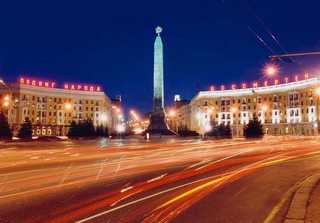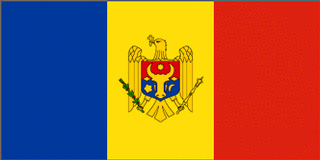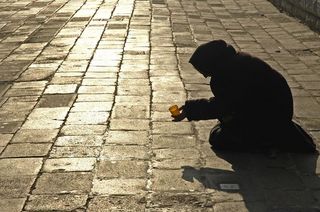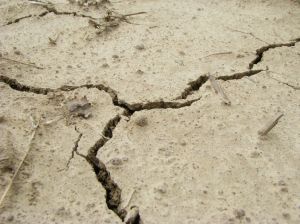Years after they were dispossessed under Saddam Hussein, Kurds are taking what they say is rightfully theirs, evicting Iraqi Arabs and seizing their homes in northern Iraq
Published:
18 April 2003 y., Friday
"We're homeless," complained Sadi Qader Muhammad, whose family was ordered out of their four-room house by a group of Kurds in this largely Kurdish city.
The new Kurdish occupants took over the house in the days of confusion immediately after the April 10 collapse of Baghdad's authority in Kirkuk. They claim the land was theirs before Saddam evicted them in the 1980s.
"It was our land," said Khader Rashid Rahim, a trader who plans to move his wife and seven children to this house. "Years ago, three of my brothers were killed by Saddam's government. They took all of our property and forcibly moved us away."
Of all the legacies of Saddam's years of rule, none might be quite so difficult and explosive as his removal of ethnic minorities from oil-rich areas. Years ago, Saddam intensified a long-standing Baghdad policy of Arabization by evicting thousands of Kurds living in the northern cities of Kirkuk and Mosul and handing their property over to Arabs from other parts of Iraq.
An estimated 400,000 Kurds were displaced from Kirkuk. Many ended up in refugee camps and dedicated their lives to retrieving their lost property.
Kurds have long vowed to return to their lost lands and homes once Kirkuk was freed. Kurdish leaders have sought to assure the United States and Arab countries that the process of return will be a lawful one.
Šaltinis:
foxnews.com
Copying, publishing, announcing any information from the News.lt portal without written permission of News.lt editorial office is prohibited.
The most popular articles
 The fate of blue fin tuna hangs in the balance this week as a complete ban on the trade is debated by MEPs.
more »
The fate of blue fin tuna hangs in the balance this week as a complete ban on the trade is debated by MEPs.
more »
 A $100 million pledge from the Government of Japan has helped to secure the funding base and launch the operational phase of two new climate programs supporting forest management and renewable energy investments in developing countries.
more »
A $100 million pledge from the Government of Japan has helped to secure the funding base and launch the operational phase of two new climate programs supporting forest management and renewable energy investments in developing countries.
more »
 Europeans quite happy with their personal situation, but less satisfied with economic and social climate in their country.
more »
Europeans quite happy with their personal situation, but less satisfied with economic and social climate in their country.
more »
 Spain wishes to “make as much progress as possible” to ensure the EU becomes party to the Council of Europe's Convention for the Protection of Human Rights and Fundamental Freedoms soon, according to the Spanish Minister for Justice, Francisco Caamaño, at today's opening of a seminar on the challenges and possibilities arising from the Treaty of Lisbon coming into force.
more »
Spain wishes to “make as much progress as possible” to ensure the EU becomes party to the Council of Europe's Convention for the Protection of Human Rights and Fundamental Freedoms soon, according to the Spanish Minister for Justice, Francisco Caamaño, at today's opening of a seminar on the challenges and possibilities arising from the Treaty of Lisbon coming into force.
more »
 According to Belarusian tradition, a stork brings good fortune to the village it settles in while in western culture the stork is commonly associated with childbirth.
more »
According to Belarusian tradition, a stork brings good fortune to the village it settles in while in western culture the stork is commonly associated with childbirth.
more »
 The World Bank Board of Directors today approved an additional financing credit to the Republic of Moldova in the amount of US $20 million for the Social Investment Fund II Project.
more »
The World Bank Board of Directors today approved an additional financing credit to the Republic of Moldova in the amount of US $20 million for the Social Investment Fund II Project.
more »
 The Spanish Health and Social Policy Minister, Trinidad Jiménez, and the European Commissioner for Employment, Social Affairs and Equal Opportunities, Vladimir Spidla, addressed the press in Madrid on the launch of the European Year for Combating Poverty and Social Exclusion 2010.
more »
The Spanish Health and Social Policy Minister, Trinidad Jiménez, and the European Commissioner for Employment, Social Affairs and Equal Opportunities, Vladimir Spidla, addressed the press in Madrid on the launch of the European Year for Combating Poverty and Social Exclusion 2010.
more »
 The European Commission and the Spanish Presidency of the EU will tomorrow launch the 2010 European Year for Combating Poverty and Social Exclusion.
more »
The European Commission and the Spanish Presidency of the EU will tomorrow launch the 2010 European Year for Combating Poverty and Social Exclusion.
more »
 Smoking at a restaurant like this one in Spain could soon be a thing of the past. Spanish lawmakers want to stub out the habit in public places like bars and restaurants. But it's an unpopular proposal in a country where around 30 percent of the population smoke.
more »
Smoking at a restaurant like this one in Spain could soon be a thing of the past. Spanish lawmakers want to stub out the habit in public places like bars and restaurants. But it's an unpopular proposal in a country where around 30 percent of the population smoke.
more »
 As President of the European Economic and Social Committee, I would like, on behalf of all the Committee's members, to express my sympathy to the victims of the earthquake in Haiti.
more »
As President of the European Economic and Social Committee, I would like, on behalf of all the Committee's members, to express my sympathy to the victims of the earthquake in Haiti.
more »